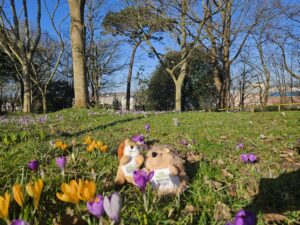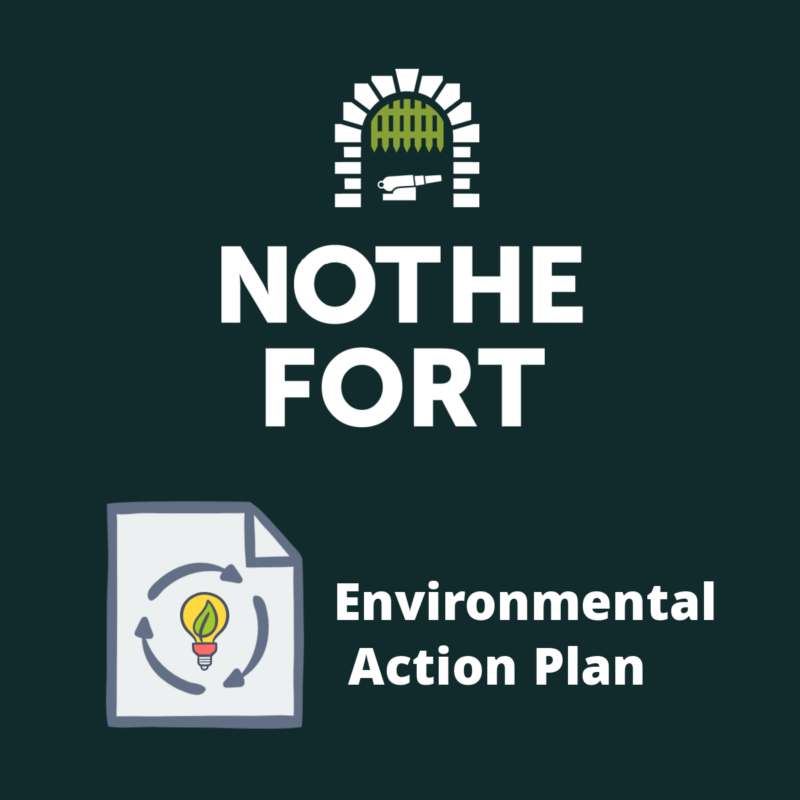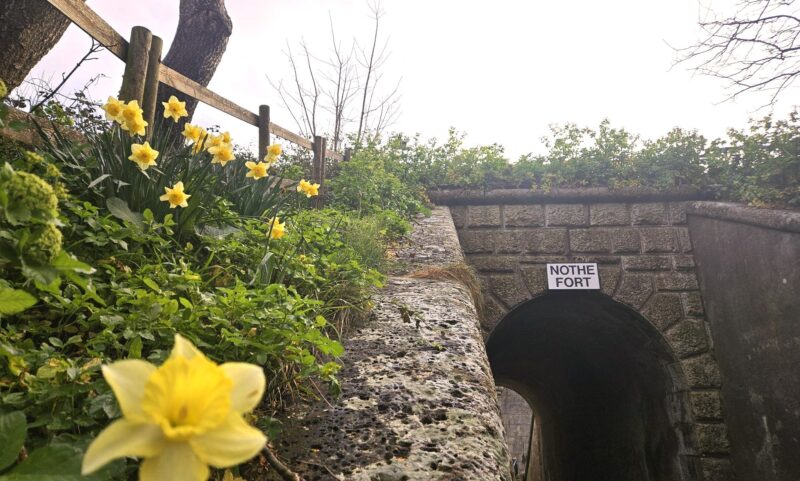Sustainability
Nothe Fort Environmental Action Plan 2025
Aim
Nothe Fort Environmental Action Plan 2025 AIM
We recognise the impact of climate on Nothe Fort and acknowledge a duty to reduce our organisation’s impact on the wider environment.
Given our prominent position in our community and that our operation is seen by 1000,000 visitors every year, we also recognise the importance of being an exemplar of environmental best practice.
This environmental action plan (EAP) outlines how we assess the environmental impact of our activities and continuously improve and showcase our related practices so that we deliver our activities in a demonstrably environmentally responsible manner.
Actions
ACTIONS
- Green Tourism Award Bronze
- To focus on areas of improvement highlighted by our Green Tourism Award application.
- To engage with the Green Tourism training and support programme.
- To apply for Green Tourism Award Silver.
- Reduce transport emissions
- Undertake an annual mode of transport surveys for our team and visitors
- Encourage our team to use zero or low carbon emitting modes of transport to travel to and from the fort
- Encourage car sharing when use of an internal combustion engine (ICE) vehicle is unavoidable
- Include walking and cycling routes to and from the Fort on promotional materials including our website
- Maintain a secure bike parking area inside our grounds
- Publicise the availability of electric vehicle (EV) charging points in the nearby Nothe Gardens
- When possible, avoid the need for people to travel to the Fort by holding meetings online
- Reduce energy consumption
- Use low-power light sources, e.g. LED lights
- Turn off all electrical devices when they are not required, e.g. turn off lights, computers and heaters when the Fort is closed or team member are not working at the site
- Reserve illuminating the Fort’s external walls only for special occasions
- Reduce our use of dehumidifiers in the building by reducing water ingress into the structure through a range of mitigating works
- Be less reliant on mains provided electricity by progressing an on-site solar array scheme
- Reduce water consumption
- Monitor water use and reduce any leakage
- Develop a rainwater capture system for use for lawn watering.
- Responsible procurement
- Whenever possible, use the nearest manufacturer or supplier of all goods and services we procure to reduce total ‘product miles’
- Where commercial printing is unavoidable (e.g. leaflets), use FSCI paper and featuring a recycled label and FSCI mark on designs
- Use local commercial printing and distribution companies, preferring those using EVs when possible
- Reduce the use of office printing and photocopying, and replace machinery with equipment of a higher sustainability rating as its contract expires
- Reuse and recycle display material whenever possible, including sharing resources with local museums
- Ensure new displays and curatorial activities comply with environmental sustainability criteria
- Use recycled building materials where possible
- Review all office procurement and practices not listed above against an environmental sustainability check list
- Purchase recycled Annual Pass cards, and encourage cardless Annual Pass scheme
- Reduce waste
- Increase recycling by replacing our basic recycling bins with a larger number of modern bins across additional locations to encourage visitors and our team to correctly separate and deposit different recyclable rubbish
- Make free water bottle refills prominently and easily available and ensure visitors are aware of it
- Work with the Café to reduce waste eg the recent introduction of a milk machine so no plastic milk bottles
- Ask all third-party stall holders trading at events hosted at the Forts to not use single use plastics
- Natural environment
Nothe Fort is situated in a unique location surrounded by the wonderful Nothe Gardens and Jurassic Coastline. And the Fort itself has a number of grass areas.

- We shall respect and act in harmony with our natural surroundings and encourage our visitors to enjoy the full experience of the environment.
- We shall work to improve our grounds maintenance plans to ensure environmental impact is reduced.
- Reduce the use of environmental harmful cleaning chemicals
- Communicate and influence
- Publish Nothe Fort’s EAP on our website
- Inform our team about Nothe Fort’s EAP, encouraging feedback to drive its continuous improvement
- Inform partners and suppliers about our EAP and initiate conversations to understand how we can work together in support of it
- Start conversations and share good practice with other museums in Dorset via the Weymouth & Portland Heritage Group and Dorset Museum Association



